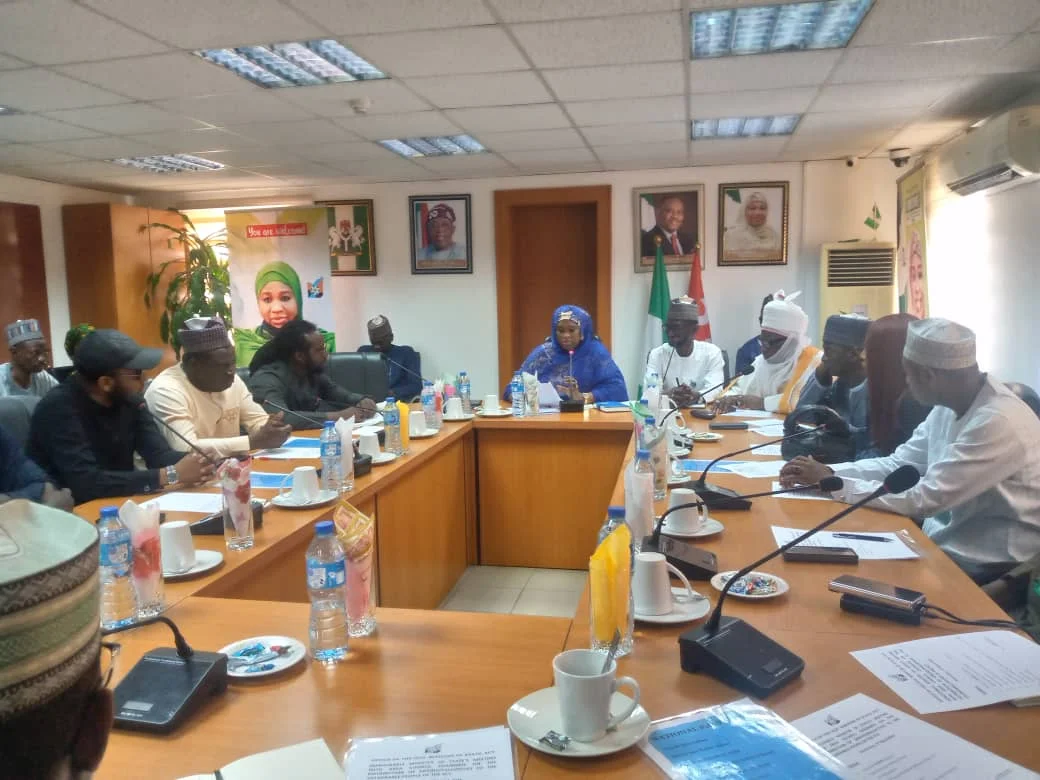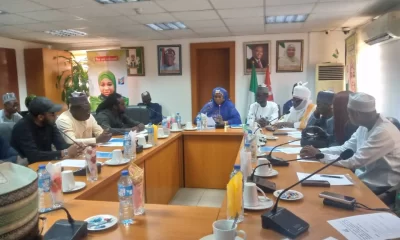Business
Adesina, World Laureates Seek US Intervention Against Global Hunger

The President of African Development Bank (AfDB) and 2017 winner of the World Food Prize, Dr. Akinwumi Adesina, alongside other World Food Prize laureates, have called for United States’ intervention to end global hunger by 2030.
In an open letter to the United States President, Joe Biden, a group of 24 scientists, economists, researchers and past winners of the World Food Prize, including Adesina, described America’s role in tackling the scourge of global hunger as ‘foundational.’
They, therefore, urged President Biden to re-establish America’s global leadership to end hunger, play a leadership role in the upcoming UN Food Systems Summit and other global initiatives.
The World Food Prize laureates urged Biden to refresh US evidenced-based policy and investments to achieve the goal of ending hunger.
They added that the US President should expand the highly successful USAID Feed the Future Initiative and Innovation Laboratories, to reach more countries.
“As the world staggers out of COVID-19 and into the light of 2021, we seek to illuminate our collective path towards 2030.
“We urge the Biden-Harris Administration to focus on the promise to Build Back Better in transforming our food systems.
“The United States leadership in ending global hunger is imperative and must be backed by bold actions and your personal commitment for the U.S. to engage on major global initiatives.
“The opportunity for renewed U.S. leadership to transform food systems has never been greater. The appetite of partners around the world to work with the U.S in both the public and private sectors is strong.
“We urge the Biden-Harris Administration to seize this moment and invest in development and cooperation to achieve zero hunger by 2030.
“ America’s leadership on getting food systems right will inspire and embolden others to join forces to end hunger, counter climate change, generate jobs, and promote responsible stewardship of the environment.
“Supporting economic growth globally leads to increased trade for American entities, increases stability in conflict areas, builds bonds of solidarity and trust that are the bedrock of diplomacy, and alleviates the suffering of the most vulnerable.
“These outcomes reflect long-held, treasured American values and offer opportunities to realize global aspirations.” the letter reads.
The World Food Prize laureates recalled that in 2009 post-financial crisis and as a result of the L’Aquila Declaration, the U.S. announced the $3.5 billion Feed the Future Initiative with bipartisan support.
They noted that the initiative helped to reverse decades-long declines in funding for food and agriculture, around the world, which also prompted collective global investments of $22 billion and triggered progress for hundreds of millions.
They cited a recent Ceres2030 report that says the world could end global hunger by 2030 with an extra annual investment of $33 billion, a small fraction of the world’s COVID mitigation investment.
The World Food Prize was created by Nobel Peace Prize Laureate, Norman Borlaug in 1986 to recognise scientists and others who had improved the quality and availability of food.
The sum of $250,000 prize is awarded annually by the Des Moines, Iowa-based World Food Prize Foundation, which receives support from more than 80 companies, foundations and individuals.
“For millions of poor people around the world, the risk of dying from hunger is greater than dying from COVID-19.
“Without food, medicines don’t work. Food and nutrition are the vaccines against hunger. Let’s vaccinate the world against hunger,” Adesina said.
Business
NCDMB Tasks Media Practitioners On Effective Reportage

Business
FCTA, Others Chart Path To Organic Agriculture Practices

The Federal Capital Territory Administration (FCTA) and other stakeholders have charted path to improved organic agriculture practices nationwide.
At a 2024 national organic and agroecology business summit held recently in Abuja, stakeholders took turn to speak on the additional areas of promoting the practices.
The Mandate Secretary, FCT Agriculture and Rural Development Secretariat (ARDS), Lawan Geidam, advocated for sustainable practice to develop resilient food systems that will benefit people.
The event, with the theme,”Towards Policies for Upscaling Organic Agroecological Businesses in Nigeria”, is aimed at fostering growth in the organic agriculture sector.
Geidam, who was represented by the Acting Director, Agric Services, in the Secretariat, Mr. Ofili Bennett, emphasised the success of organic and agroecological farming, reling on the active involvement of farmers, businesses and consumers.
He reassured attendees that the FCT Administration, led by the Minister, Nyesom Wike, and Minister of State, Dr. Mariya Mahmoud, remains dedicated to supporting initiatives that enhance the livelihood of residents.
Geidam described the partnership between the Secretariat and the organic and Agroecology initiative for a monthly exhibition and sale of organic products in the FCTA premises as a testament to this commitment.
“The ARDS remains committed to driving policies and initiatives that align with national goals and global standards”, Geidam said.
On her part, the Chairperson of Organic and Agroecology Initiative, Mrs. Janet Igho, urged residents to embrace healthy eating habits to sustain a good lifestyle. She stressed the importance of adopting organic practices, highlighting the benefits of going organic, growing organic and consuming organic products.
Igho expressed her optimism regarding the Agricultural Revival Programmes as articulated in President Bola Ahmed Tinubu’s “Renewed Hope Agenda”, which aims at fostering food and nutrition security.
She also extended her gratitude to ARDS for graciously allocating a space in the FCTA premises for the exhibition and sale of organic products, noting that the platform has been effectively used to advance the promotion of organic agriculture in FCT.
Igho outlined several benefits of organic agriculture which includes improved soil health, increased biodiversity, availability nutritious and healthy food and a reduced carbon footprint.
Stakeholders at the summit, underscored the critical need for enhanced private sector involvement and robust capacity building initiatives for farmers.
They highlighted the importance of implementing supportive policies to foster the growth of the organic agriculture sector.
In the light of the significant challenges facing Nigeria’s agricultural landscape, stakeholders decided that organic agricultural practices present sustainable solutions and a pathway for a more resilient and productive farming systems.
The three-day summit featured exhibitions showcasing organic foods, fruits, vegetables and fertilizers, providing an opportunity for residents to better appreciate the benefits of production and consumption of organic agricultural products.
Business
Dangote Refinery Exports PMS to Cameroon

-
News2 days ago
120 To Bag First Class At RSU Convocation
-
Nation2 days ago
NASS Set To Receive Tinubu’s N47.9trn 2025 Budget
-
Business2 days ago
NNMDA To Train 5m Nigerian Youths On Cassava Plantation
-
Women2 days ago
Cooking And Its Importance To Women
-
Niger Delta2 days ago
Bayelsa, Rivers To Establish Joint Anti-Vandalism Taskforce On National Grid, Others
-

 Business2 days ago
Business2 days agoFCTA, Others Chart Path To Organic Agriculture Practices
-

 Business2 days ago
Business2 days agoDangote Refinery Exports PMS to Cameroon
-
News2 days ago
Bill For Compulsory Counselling For Convicted Corrupt Nigerians Scales Second Reading

